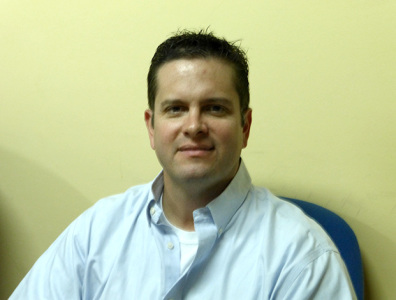
in figures
Years without a lost time incident10
Local content70 percent
Sole provider: navigating the complexities of chemicals supply
March 13, 2015Wallace Trew, the district manager of Nalco Champion in Equatorial Guinea, tells TOGY about the ins and outs of the oilfield chemicals market in Equatorial Guinea and ease of doing business. Nalco Champion EG is the only local supplier of oilfield chemicals in Equatorial Guinea.
What are the fundamentals of the oilfield chemicals business in Equatorial Guinea?
Before the merger between Nalco and Champion, we used to be competitive in this segment of the market. Now we have retained almost the entirety of the oilfield chemicals market share.
Some of the operating companies, such as the Houston-based oil operator Marathon Oil, purchase some particular chemicals from foreign suppliers, but as far as local suppliers we are the only ones offering specialty products. Though tenders for contracts are open for any company in the world, it is easier to succeed if you are based locally.
It is very advantageous for a company that wishes to thrive in this market to commit to local content regulations and employ and train Equatoguineans. This helps a lot when dealing with the government and with local logistic and operational issues.
Moreover, being legally established as a local company also provides considerable advantages when bidding for contracts. If you can strengthen this local knowledge with the chemical expertise from an international company, you will be able to have a strong and lasting relationship with the clients in the country.
Which chemicals are in high demand by operating companies?
Though anti-corrosive chemicals are probably the products in most demanded at the moment, each company has a particular “item” that they need for the specific operational demands of their own fields.
For instance, Marathon Oil is interested in chemicals that protect from hydrogen sulphide and corrosion, so we are actually working on a combo product for them that would combine the two into one. On the other hand, another Houston-headquartered exploration and production company, Noble Energy, demands chemicals related to water fluids and phase separation. Meanwhile, over at Hess, the company has an asphaltene issue that needs to be taken care of with oilfield chemicals.
There is no one product in the market to serve all customers, every company has their own particular issue depending on the different reservoirs and blocks, and whether they are extracting oil, gas or condensate.
What is the process behind introducing a new product to the market?
That is driven from two areas. On one side, it can come from in-house global research and development programmes where companies identify a niche market and develop a new chemical on their own proactive behaviour. Through this process, we offer companies new products that our research and development departments create.
On the other side, new products can be custom driven by the particular demands of a company. For instance, Marathon Oil has asked us to design and implement a new combo product that will be a corrosion inhibitor and water scavenger. That is a novel approach as these products are usually injected and delivered through two separate chemical arms.
Due to the logistical and capabilities limitations in Equatorial Guinea, the research and development of new products need to be completed abroad, in our case at our laboratories in Houston.
What are the hurdles for providing regional distribution services from Equatorial Guinea?
Importation and exportation rules are very strict in the country, so it is important to clearly know your responsibilities before engaging in these activities. Companies working in the oil and gas industry are exempted from import taxes when the chemicals are sold to the end customer inside Equatorial Guinea. For the country to become a true regional centre, the fiscal pressure on exporting products from Equatorial Guinea to a third country must be eased.
There also needs to be a development of sea-lanes and transportation routes in the region. In March 2015, it is easier and faster to import something from Europe or from the US, than to move goods from Luba to Port Gentile in Gabon. This is because there are no fixed boat schedules between Equatorial Guinea and other regional ports.
Until regional countries do not develop sharing agreements to ease bilateral trade it will be very difficult for services companies based in Equatorial Guinea to broaden their horizon and jump over national boundaries.
For more Equatorial Guinea news and features, click here
Read our latest insights on:


 Equatorial Guinea
Equatorial Guinea 














